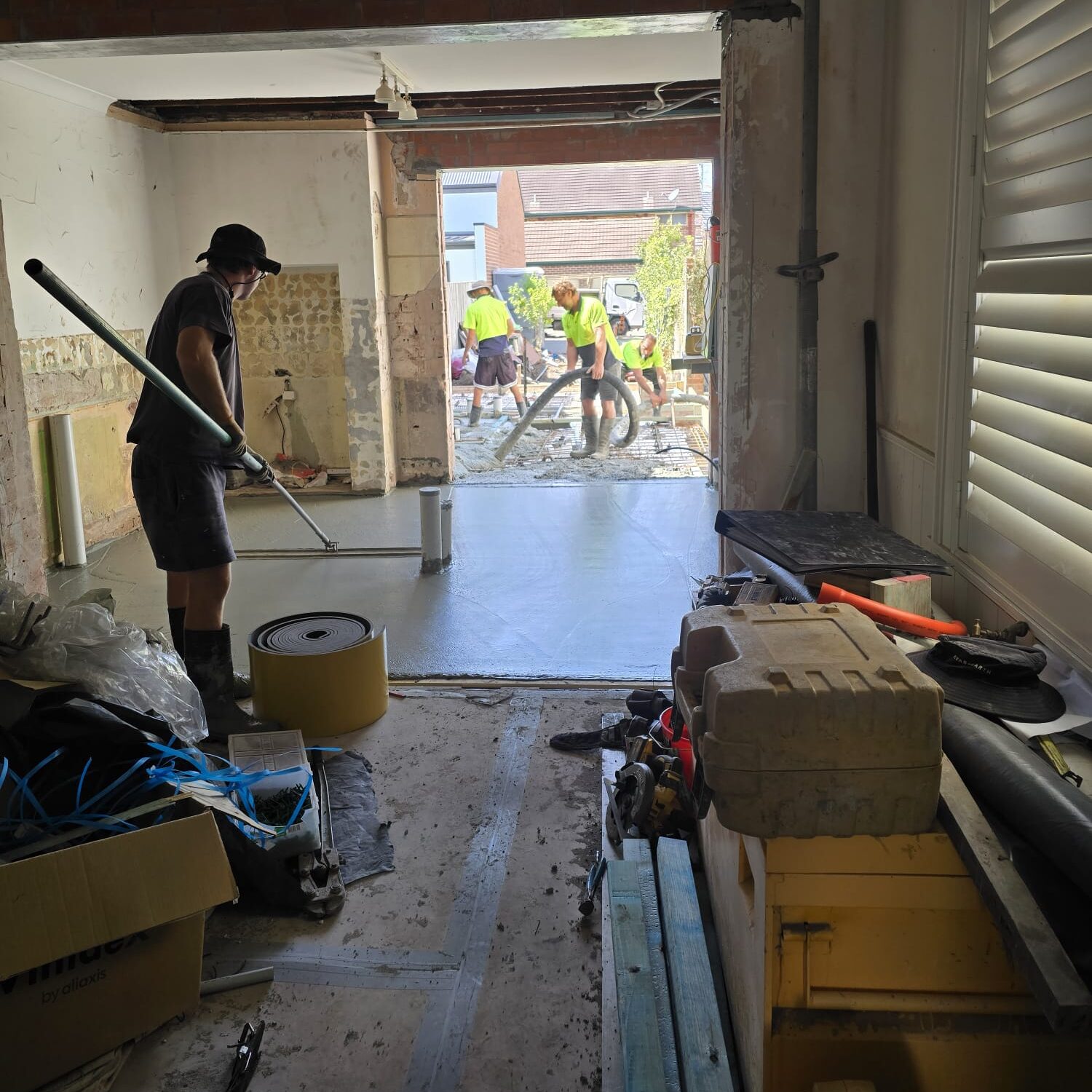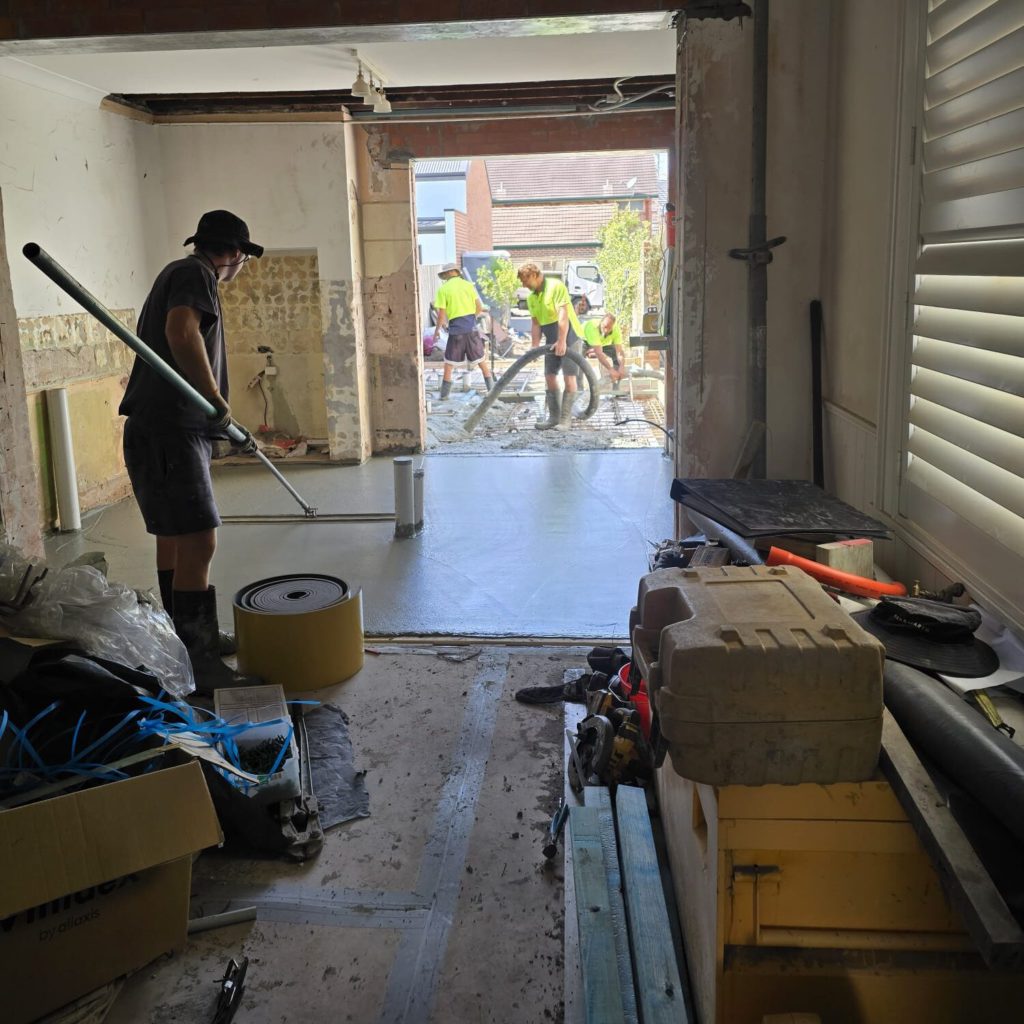Are you considering the installation of a shed slab, the creation of a new driveway, or laying down footings for a home extension? If so, you may have come across the term “cement pump.” But what exactly does this term mean, and why is it crucial for your construction project?
This comprehensive guide offers valuable insights into the process of hiring a cement pump and illustrates how utilizing one can dramatically improve your next concrete pour by streamlining the process, ensuring cleanliness, and enhancing efficiency.

Understanding the Difference: Cement Pump vs. Concrete Pump
In the construction realm, it is a frequent misconception to confuse the term cement with concrete. As a result, when people refer to a cement pump, they are typically actually talking about a concrete pump. This advanced machinery is meticulously designed to transport mixed concrete from the delivery truck to the precise location required for your construction project.
Concrete pumps prove to be especially advantageous in a myriad of situations, including:
- Delivering concrete to hard-to-reach areas, such as behind a house or in tight spaces
- Eliminating the necessity for wheelbarrows, which reduces tiring manual labor
- Ensuring a cleaner and more organized job site throughout the construction process
It’s important to note that there isn’t a dedicated machine solely for pumping cement since cement is merely one ingredient in the concrete mix. Therefore, when preparing to pour a slab or set footings, what you genuinely require is a concrete pump. For residential projects, a line pump is typically the most commonly used option.
Identifying Scenarios Where Using a Concrete Pump is Essential
If you encounter any of the following situations, it is vital to consider utilizing a cement pump (more accurately, a concrete pump) to save significant time, energy, and minimize mess:
- Pouring a shed slab in your backyard
- Replacing an aging driveway that has deteriorated over time
- Installing footings for a deck or a granny flat addition
- Working in tight access or confined areas where maneuverability is restricted
In these scenarios, employing a concrete pump will undoubtedly streamline your project. By opting for a pump instead of relying on wheelbarrows or trying to pour directly from the truck, the concrete can be accurately delivered right where it is needed, even if that location is over 30 meters away from the road.
Step-by-Step Guide for Effectively Hiring a Concrete Pump
Securing a concrete pump can be relatively simple, but ensuring you make the right choice is crucial to avoid unnecessary complications. Here’s a straightforward yet effective guide to assist you:
1. Define the Specifics of Your Project
Are you pouring a slab, setting up footings, or constructing pathways? Understanding the details of your project will help in selecting the right pump size and configuration tailored to your requirements.
2. Accurately Compute Your Required Pour Volume
Determine the required volume in cubic meters using the formula (Length × Width × Depth in meters). If you’re uncertain about how to perform these calculations, our team is more than happy to assist you and ensure you consider any potential overrun. Here is a guide on how to calculate the amount of concrete you will need for your project.
3. Assess Your Access Points for Concrete Delivery
Can we access the site with a hose line? Is there adequate space for a concrete truck? It is essential to communicate any access limitations so we can plan accordingly, ensuring seamless operations and preventing delays in your project schedule.
4. Schedule the Pump Along with Concrete Supply and Labor Services
At Hunter Concrete Pump Hire, we offer comprehensive support, which includes coordinating the concrete supply, labor, and the pump — all as part of a seamless package, enhancing your overall project experience.
Your Trusted Local Experts for Reliable and Efficient Concrete Solutions
If you are located in Newcastle, Maitland, or the Hunter Valley, our team stands as your reliable local choice for professional and clean concrete pumping services. We provide mini pumps and line pumps specifically designed for residential projects. Our pricing structure is transparent and straightforward, offering options for flat rates or hourly rates, ensuring you are fully informed about what to expect before we begin.
Whether this is your first project or you are an experienced builder, we will guide you through the entire process, ensuring that everything is executed correctly and efficiently from start to finish.
Addressing Your Frequently Asked Questions
Is it referred to as a cement pump or a concrete pump?
While many individuals refer to it as a “cement pump,” the correct term is “concrete pump.” Cement is just one component of the complete mix used in construction projects.
What are the costs associated with hiring a cement pump?
The prices vary based on the specifics of your project. At Hunter Concrete Pump Hire, our flat rate starts at $800, or you can opt to book on an hourly basis. We will assist you in evaluating the best option that meets your specific job requirements.
Can I rent a pump without ordering concrete?
Absolutely. However, we can also help in supplying the concrete mix if you prefer to have a single point of contact for the entirety of your project.
Need Help with Your Construction Project?
Whether you are preparing for a slab pour, installing a shed, or laying footings for a new construction — we are here to assist you in identifying the appropriate pump, calculating the required amount of concrete, and overseeing the entire pouring process to ensure that everything proceeds smoothly.
The Article: Cement Pump: Understanding Its Use and Importance first appeared on https://writebuff.com
The Article Cement Pump: Key Insights on Its Use and Significance Was Found On https://limitsofstrategy.com


